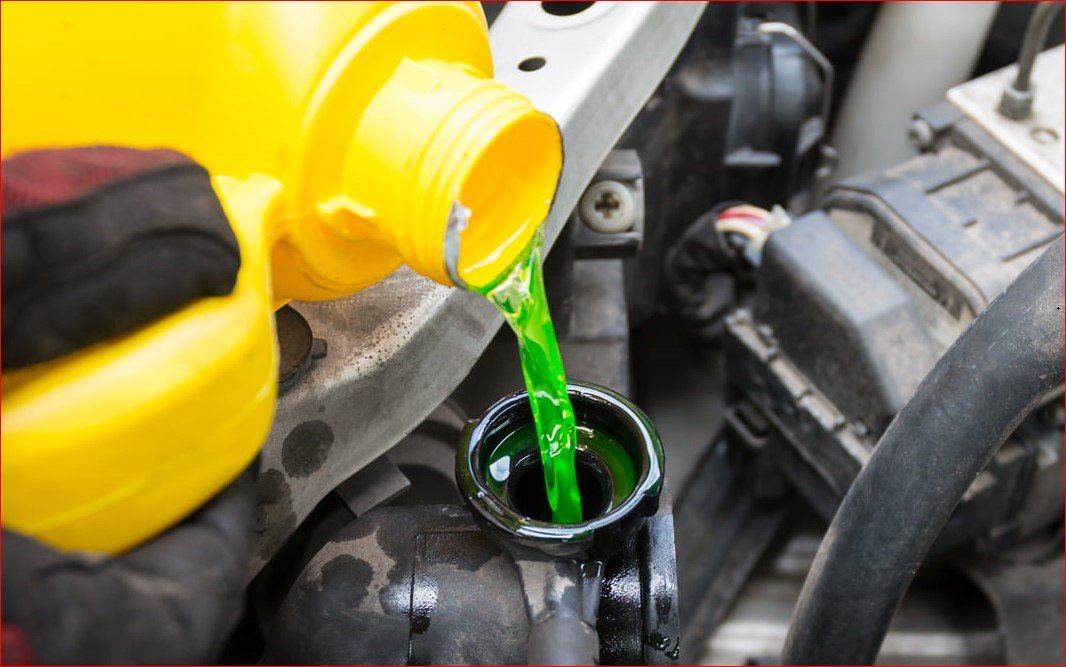You may wonder where the antifreeze goes if it’s not leaking anywhere, especially with the onset of cold weather. In winter, this is most likely due to simple physical reactions when the volume of any liquid in the cold naturally decreases. It’s a good practice to monitor the level of antifreeze in the expansion tank periodically.
How to Determine If the Antifreeze Is Leaking?
At the same time, there is another situation in which antifreeze disappears from the expansion tank for no apparent reason. Although there is no damage to the pipes and the cover, there are no traditional puddles under the vehicle when parked.
Read More: Top 6 Reasons To Get A VPN in Japan
The loss of coolant can be noticed by its level in the expansion tank. Signs that the level of the antifreeze is decreasing are a malfunctioning heating system, fogging of the windshield and accumulation of moisture under the front mats, rapid overheating of the engine, or difficulty setting its temperature to operating values.
In that case, you can try to find out the reasons for the decrease in the level of antifreeze yourself by performing a car inspection in approximately the following order:
- Examine the expansion tank and its cover directly.
- Inspect the radiator of the car.
- Look at the radiator of the stove.
- Check the thermostat housing.
- Inspect all connections and nozzles.
- Inspect the pump (cooling system pump).
As a rule, such an inspection, if it’s carried out with enough attention, allows you to determine where the antifreeze is running out and eliminate this problem.
Thorough Car Examination
It’s usually enough to examine the engine with maximum care to understand where the antifreeze goes from the expansion tank. Remember that a heavily dirty engine should be washed in advance and waited for a while—in this case, all traces of leakage will be visible (for example, on the nozzles).
Read More: 7 Best Alternatives To Amazon Fire Stick
One of the frequent reasons why antifreeze runs out from the expansion tank is a violation of the tightness of the nodes in the cooling system; in particular, the radiator can be the reason. Another common problem is a breakdown of the radiator housing, for example, after a stone hits it.

Suppose the antifreeze leak is due to the fault of the heater radiator. In that case, it becomes apparent almost immediately because an unpleasant smell appears in the cabin that cannot be eliminated, and a sticky spot often spreads under the dashboard. In this case, it’s necessary to take measures without the slightest delay since antifreeze vapors are very toxic to humans.
If you have a situation when antifreeze enters the engine system, the wine is pumped. More precisely, it’s a worn oil seal. Only a careful inspection will help to determine this visually. If there are wet spots at the bottom of the engine, it’s almost guaranteed that the pump is the reason.
Broken Hoses, Engine Overheating, and a Damaged Nozzle are also Reasons
For old cars with significant mileage, the worn hoses are often why the antifreeze runs out. Over time, they lose their elasticity, crack, and can no longer withstand constant pressure. It’s fastening at the connection point also loses strength and weakens, leading to antifreeze leakage. For preventive purposes, it makes sense to change the cooling system’s hoses after approximately 10 years of operation and to use screw clamps for fastening.
Read More: What is a B2B Sales Representative? Everything You Need to Know
A careful inspection is enough to determine whether the hoses caused the antifreeze to run out quickly. If apparent damage is visible, then to identify minor defects, it is necessary to thoroughly rub all the hoses with a dry cloth first and run the engine at idle speed. After that, the areas of coolant leakage become visible. In several cases, carrying out an operation to replace worn nozzles is necessary.
In some cases, antifreeze leaks into the engine. This is the result of damage to the cylinder head gasket. Quite often, owners of salvage cars or cars with a mileage of more than 100,000 km are faced with this situation. Gasket failure occurs due to somewhat pronounced temperature and compression fluctuations. The most common cause of this breakdown is engine overheating.
Conclusion
Antifreeze is one of the most critical vehicle technical liquids that affects the engine’s technical state because it prevents the motor from overheating. That’s why any driver should not only buy a high-quality antifreeze liquid but also keep an eye on whether there are any leaks.
Even though replacing or topping off antifreeze isn’t tricky, it’s worth remembering some points that must be observed. For instance, pouring pure antifreeze into the system is not recommended. It must first be diluted with pure distilled water. Don’t pour coolant into a hot engine and wait till it cools completely.
